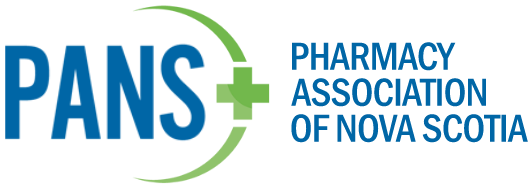It’s 2:15 pm during the great blizzard of 2017 and I get an email from pharmacist Nadine Grimm telling me she is still good to go for our scheduled call at 2:30 pm. I’m sequestered from the snow and wind, warm in my apartment. Nadine is at work.
She picks up the phone after one ring when I call her promptly at 2:30.
“You’re at work,” are the first words out of my mouth. It’s more an exclamation than a question.
“Of course,” she says. “We’re essential workers. The babies still need their TPN, IVs and medications.”
Nadine works as a clinical pharmacist at the IWK Heath Centre in the neonatal intensive care unit (NICU). It is a unit specializing in the care of ill and premature newborn babies.
The babies under Nadine’s care have been born between 23 weeks and full term (term is considered 37 weeks to 42 weeks). Many of the babies are so little and frail that they have to be fed through an IV called TPN (total parenteral nutrition). Helping to ensure that the correct mixture of nutrients is provided to the baby through the TPN is one of the unique responsibilities of Nadine’s job. As pharmacist working in this unit, Nadine’s responsibilities also include making sure medication is appropriate, ensuring medication doses are precise for these tiny babies and is a resource for her coworkers on how to properly give these medications.
She also serves as a resource for hospitals across the province and throughout the Maritimes who are caring for premature babies. Additionally, she serves on numerous committees and works on policy development collaboratively with her fellow health care providers.
The pharmacists in the NICU work as part of an interprofessional team made up of doctors, nurses, dieticians, physiotherapists, social workers and occupational therapists. They participate in rounds every day. They get to know the patients families quiet well because the babies are often in the unit for a long time, sometimes 10 or 20 weeks. The youngest patient Nadine has cared for was less than 23 weeks old and weighed less than a pound of butter.
Babies born early have a host of special needs. Nadine’s patients also include babies with special surgical needs, such as being born with their intestines on the outside of their body. Others have complicated genetic conditions that affect their metabolism and require unique, individualized medications. Some have cardiac issues, while others have serious infections. There is a lot of problem solving involved in Nadine’s job.
Nadine didn’t start her career in pharmacy with the intent to work in a hospital, let alone in a NICU. There were not a lot of job opportunities in the metro area when she graduated in 1997. She saw an ad in the paper for a four month term at the IWK and, with the encouragement of her family, applied. Today, most hospital pharmacists have to complete hospital residencies as part of their training, much like doctors, to be considered for a position in a hospital. Nadine was fortunate to have her contract extended, and then extended again. She then moved to the NICU in 1999 to fill in for a maternity leave. She has been there ever since.
Nadine is quick to point out that she feels fortunate to work in a hospital environment where she has access to a wealth of experts such as pharmacists who specialize in areas such as infectious disease or maternal health and physicians who are highly trained in very specialized areas. She says that the prescribers in the NICU are used to having pharmacists working side-by-side with them and are very open to the collaborative process, which leads to exceptional patient care.
Nadine is actively involved in the Canadian Society of Hospital Pharmacists (CSHP) as well as the Pharmacy Association of Nova Scotia. She recently was awarded the Isabel E. Stauffer Meritorious Service Award which is presented annually to a CSHP Member for prolonged service and involvement in CSHP at the local level.
Interestingly, Nadine met her husband in pharmacy school. He took a very different path in his career than Nadine and owns a pharmacy in Fall River.
Although Nadine is supportive of community pharmacy and her husband’s interest in the business of pharmacy her heart remains with her patients at the IWK. Always eager to learn more, Nadine hopes to become more involved with research at the hospital.
There is still much to learn about the care of these tiny babies and Nadine hopes to work with the neonatologists to find the best ways to make them stronger and healthier.
As I finish my call with Nadine, she tells me that she has decided to stay at a hotel close to the hospital. Her husband is at home with their son - warm and safe. The roads are pretty much impassable. Buses and taxis aren’t running. She’s not quite sure how she is going to get to the hotel but she will figure it out. And she will be back at the hospital tomorrow, checking the results of lab work, checking medications and TPN and more.
She will be there for her tiny patients, regardless of the weather.

